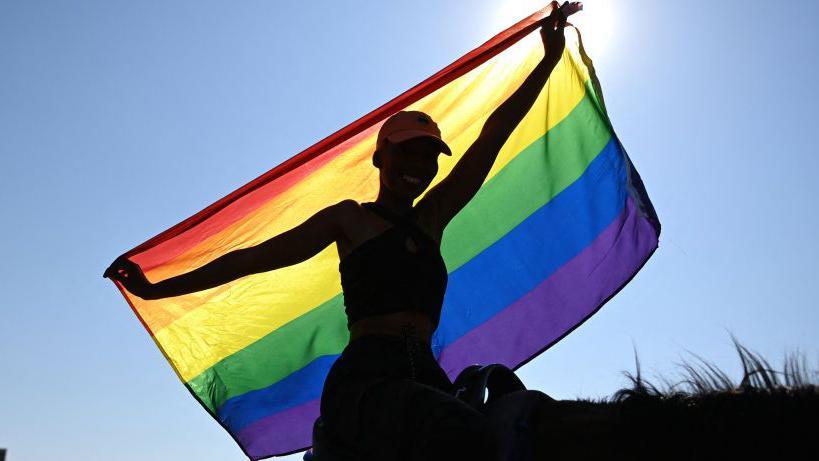In a significant ruling, Ghana’s Supreme Court has unanimously dismissed two legal challenges opposing a controversial anti-LGBT legislation known as the Proper Human Sexual Rights and Ghanaian Family Values bill. This legislation, which was passed earlier in the year, seeks to impose severe penalties, including three years in prison for individuals identifying as LGBT and five years for those who form or fund LGBT organizations. The ruling follows increasing criticism from human rights advocates and organizations, including the United Nations, which have condemned the law as one of the most oppressive anti-LGBT measures in Africa. The dismissals have heightened fears within the already vulnerable LGBT community in Ghana, further exacerbating the climate of fear and insecurity they face.
The legal challenges were brought forth by Amanda Odoi and Richard Dela-Sky, who aimed to declare the bill illegal and block President Nana Akufo-Addo from signing it into law. President Akufo-Addo had previously held off on signing the bill, awaiting the Supreme Court’s decision regarding its constitutionality. After months of deliberation, the judges concluded that they could not review the bill until it had received presidential assent. Justice Avril Lovelace-Johnson, representing the Supreme Court, commented, “Until there’s presidential assent, there is no act,” thereby affirming the procedural limitations in addressing the case. Both Odoi and Dela-Sky expressed dissatisfaction with the court’s ruling and indicated plans to explore further legal options after assessing the full judgment.
The proposed legislation has garnered backing from both major political parties in Ghana, raising concerns about its widespread acceptance. However, Dela-Sky argued that sufficient parliamentary procedure was not followed, claiming there were not enough members present during the crucial vote. The political climate surrounding the bill remains charged, especially with the recent elections in which opposition leader John Mahama has openly endorsed the measure. As President Akufo-Addo’s two-term presidency approaches its conclusion, there is uncertainty about whether he will sign the bill into law, but should it be enacted, it is likely to face additional legal challenges.
Already, the impact of the proposed legislation has reverberated throughout Ghana’s LGBT community, which is largely marginalized in this conservative society. Abena Takyiwaa Manuh, a senior fellow at the Centre for Democratic Governance in Accra, highlighted the grave implications of the bill for community members and human rights defenders. Even in the absence of the law, members of the LGBT community have reported increased incidents of violence and discrimination against them. The formalization of such deeply punitive measures poses significant risks to their safety and well-being, amplifying the threats they encounter in their daily lives.
Initially presented to parliament in 2021, the bill has faced multiple delays over the past years before finally being passed. The controversy surrounding the legislation has drawn attention from various sectors, including the finance ministry, which has cautioned that Ghana could potentially forfeit approximately $3.8 billion in World Bank funding over the next several years should the bill be enacted. This financial warning highlights the intersection between economic aid and human rights issues, as international partners often link funding to a country’s commitment to upholding basic human rights standards.
As the legal landscape evolves following the Supreme Court’s ruling, the future for Ghana’s LGBT community remains uncertain. Although gay sex is already criminalized in Ghana and punishable by imprisonment, this new legislation escalates the potential for legal and societal persecution of LGBT individuals. The effects of such laws extend beyond mere legal implications, profoundly affecting the life and health of community members and exacerbating the cycle of violence against vulnerable groups in society. The situation in Ghana reflects broader regional trends where anti-LGBT sentiment is reflected in government-instituted policies, underscoring the urgent need for advocacy and legal support for marginalized communities in the face of rising discrimination and violence.

